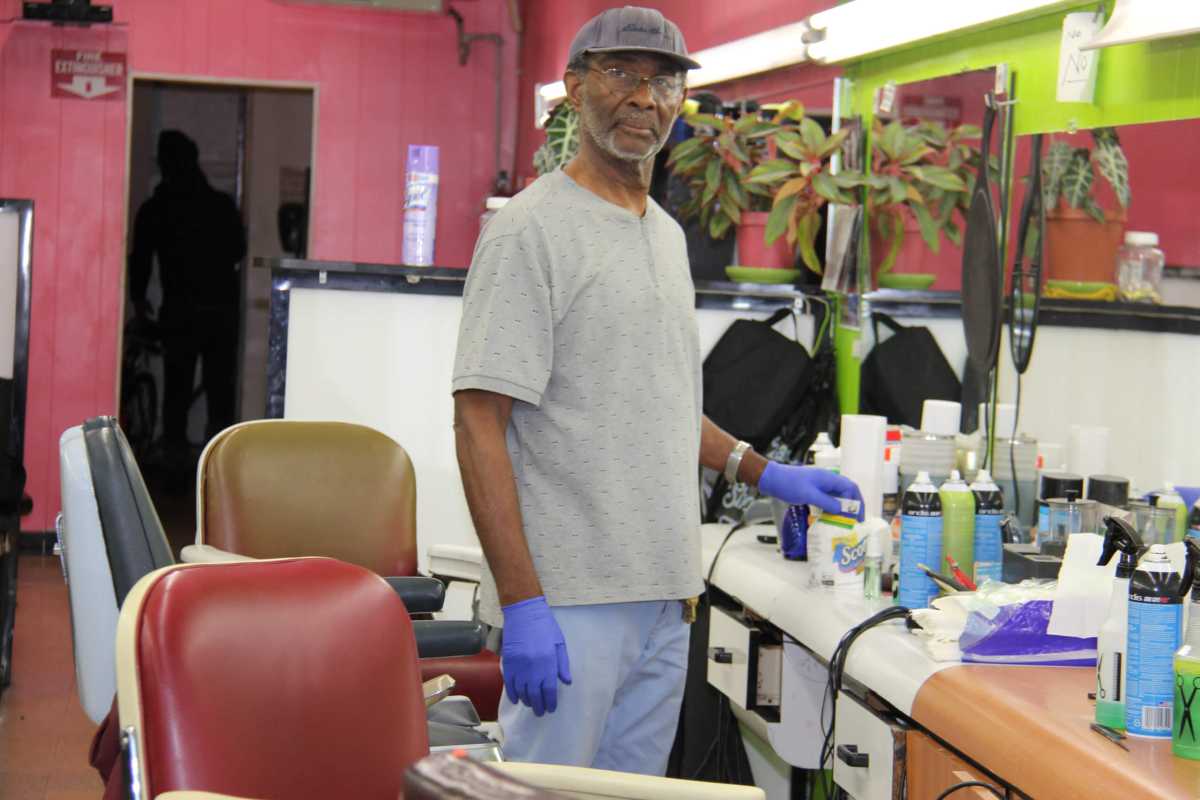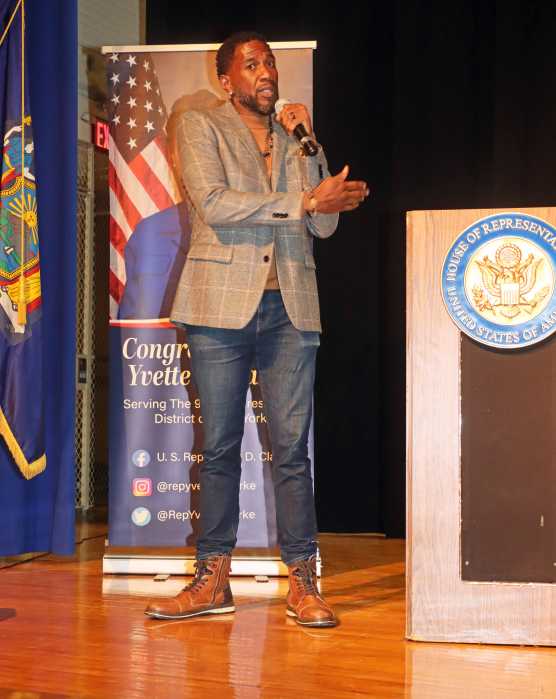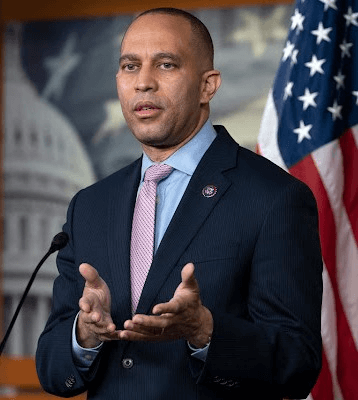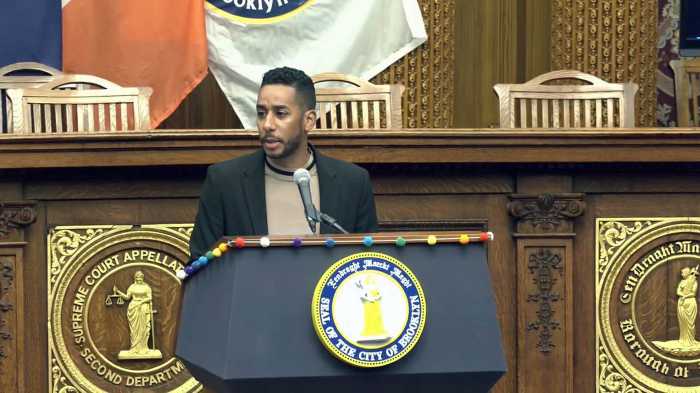As many small businesses in the United States are already adversely affected by the coronavirus (COVID-19) pandemic, many in Brooklyn have been feeling “the squeeze,” including barber shops, and hair and nail salons.
Some have been forced to close their doors, while others, while remaining open, have to contend with little or no customers.
In order to get a better idea of how the pandemic is affecting barber shops in the epicenter of the Caribbean community in Brooklyn, this reporter on Tuesday afternoon/evening walked along the still very busy section of Church Avenue, between Linden Boulevard and Rockaway Boulevard.
While many businesses are still thriving, one Jamaican-owned barber shop stood out, with no customer whatsoever for over an hour, as the reporter waited to get a better idea of how business was progressing.
Horace Bailey, the Jamaican-born owner of Ivan’s Barber and Beauty Salon, 9513 Church Ave., near Linden Boulevard, bemoaned the effects of the pandemic on his business.
“Nothing is going on,” Bailey, who hails from Jamaican parish of Clarendon, alluding to lack or non-existent customers, told Caribbean Life. “We’re not seeing any customers.
“It’s very, very slow – not even a customer,” he added. “The landlord needs to so something (to either reduce or put off paying the rent). You can’t get money to pay, if you can’t get work.”
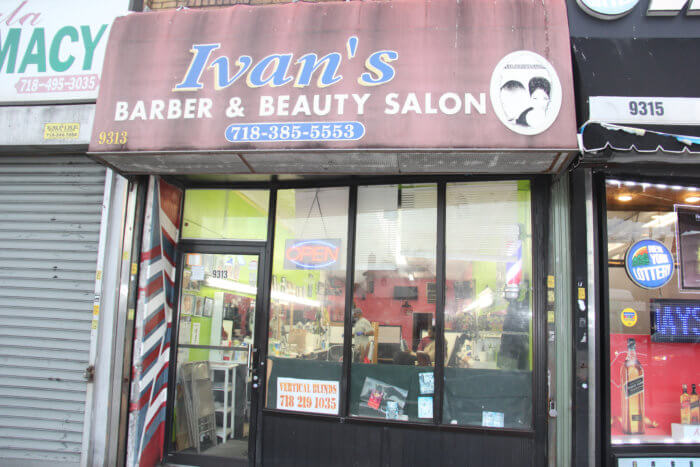
Photo credit: Nelson A. KingPhoto by Nelson A. King
Bailey said his business began to slow down about two weeks ago, but got worse in recent days.
As he sat next to empty chairs, Hubert Palmer, 70, another Jamaican, said business was extremely slow.
“Right now, I can’t eat food, and I’m still here,” said Palmer, a barber and native of Troy, Trelawney, Jamaica. “I have to pay rent, and it’s hard on me.”
As he played with his phone, barber Noel Hedge, who hails from St. Mary’s, Jamaica, said he has been struggling to make ends meet since the COVID-19 pandemic hit.
“No work!” he exclaimed. “Since it happened, barely nobody comes here. And rent has to pay, bills have to pay.”
On Tuesday, as part of the Trump administration’s efforts to combat the coronavirus outbreak (COVID-19) and to minimize economic disruption to the nation’s 30 million small businesses, the US Small Business Administration (SBA) Administrator, Jovita Carranza, issued revised criteria for states or territories seeking an economic injury declaration related to COVID-19).
But it remains uncertain how small businesses, such as Ivan’s Barber and Beauty Salon, will benefit from it.
Carranza said the relaxed criteria will have two immediate impacts: “Faster, Easier Qualification Process for States Seeking SBA Disaster Assistance”; and “Expanded, Statewide Access to SBA Disaster Assistance Loans for Small Businesses.”
Historically, the SBA has required that any state or territory impacted by disaster provide documentation certifying that at least five small businesses have suffered substantial economic injury as a result of a disaster, with at least one business located in each declared county/parish.
Under the just-released, revised criteria, states or territories are only required to certify that at least five small businesses within the state/territory have suffered substantial economic injury, regardless of where those businesses are located.
SBA disaster assistance loans are typically only available to small businesses within counties identified as disaster areas by a governor.
Under the revised criteria issued on Tuesday, disaster assistance loans will be available statewide following an economic injury declaration.
“This will apply to current and future disaster assistance declarations related to coronavirus,” the SBA said.
“We’re very encouraged that banks and financial institutions are responding to the president’s efforts to mobilize an unprecedented public-private response to the coronavirus (COVID-19) outbreak. As a result, most small businesses that need credit during these uncertain times will be able to obtain it,” Carranza said.
“However, our goal is to ensure that credit is available to any and all small businesses that need credit but are unable to access it on reasonable terms through traditional lending channels. To that end, the SBA is relaxing the criteria through which states or territories may formally request an economic injury declaration, effective immediately.
“Furthermore, once an economic injury declaration has been made in a state or territory, the new rules allow the affected small businesses within the state or territory to apply for a disaster assistance loan,” he continued.
Carranza said SBA’s Economic Injury Disaster Loans offer up to $2 million in assistance for each affected small business.
“These loans can provide vital economic support to small businesses to help overcome the temporary loss of revenue they are experiencing,” he said.


